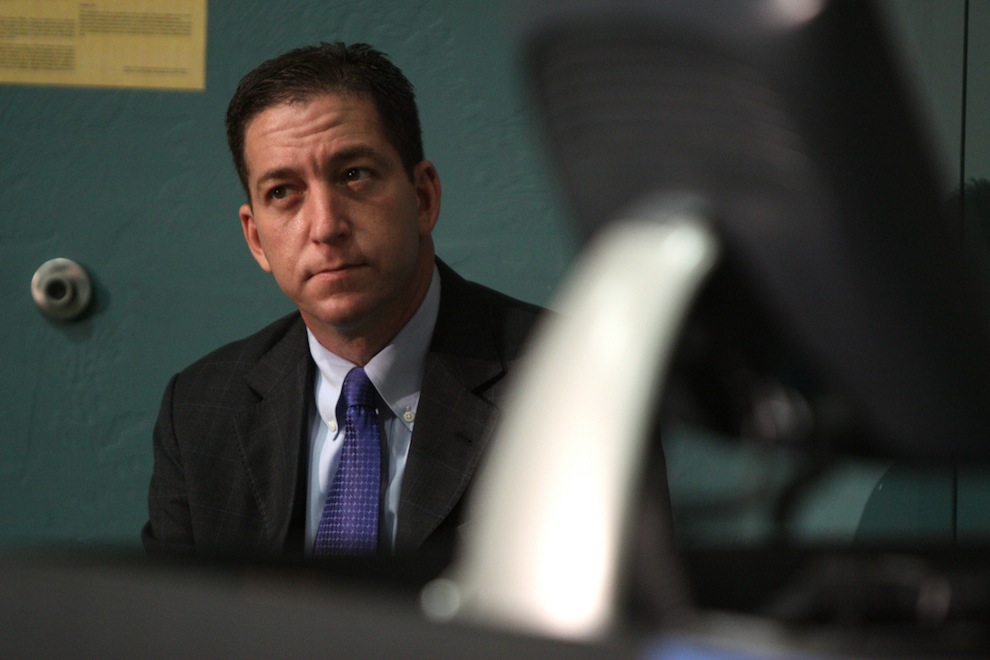
Will Twitter follow Facebook’s path?: Twitter had a massive first day as a public company, with its stock gaining 73 percent to close at $44.90 a share as it rode a wave of optimistic evaluations like that of Business Insider’s Henry Blodget. The jump in value meant Twitter left loads of money on the table, though some, such as Forbes’ Jesse Colombo, saw it as further evidence of a tech bubble. Rather than worrying about whether Twitter’s stock is overvalued or undervalued, though, Felix Salmon of Reuters encouraged would-be investors to spend time actually using Twitter, where they’re sure to get more value.
It was, all in all, a much smoother IPO than Facebook’s last year, though were hints at the type of scandal that plagued Facebook, in the form of different information about Twitter’s prospects given to top clients than to most investors. Quartz’s Zachary Seward also used Facebook as a model for the profit-obsessed road down which Twitter is headed: “There will only be more of that. More ads in more places. More pressure to make more money. Which makes sense, but we don’t have to celebrate it.” GigaOM’s Mathew Ingram voiced the common concern that Twitter’s pursuit of profit and coziness with TV might fundamentally damage its product.
On the other hand, Newsweek’s Tim Carmody contrasted Facebook and Twitter, calling the former the universal recipient and the latter the universal donor because of its willingness to work with traditional media. “Twitter is different. It is a complement, not a replacement or disruptor, and it quickly learned to play nice with the big media companies,” he wrote. Likewise, Om Malik of GigaOM described the differing cultures and journeys to public ownership of Facebook and Twitter. In Bloomberg Businessweek, Paul Ford broke down the technical element that’s so important to Twitter’s value — the extensive metadata available through its API.
Meanwhile, the Pew Research Journalism Project released a study examining those who consume news on Twitter, finding that a relatively small subset of American adults (8 percent) use Twitter for news — one that tends to be younger, more educated, and more connected to mobile devices than the rest of the population. Kara Bloomgarden-Smoke of the New York Observer noticed news organizations on Twitter tending toward a young, conversational tone, seeing it as a potentially effective (and also potentially tone-deaf) way to draw clicks in such a youth-oriented environment.
 Elsewhere in Twitter and journalism, Chris Cillizza of The Washington Post also looked into CNN reporter Peter Hamby’s recent report to explore the ways in which Twitter has changed political journalism, and the Lab’s Joshua Benton used some nifty data to conclude that news sites’ Tweet Buttons are less important in site’s Twitter strategy than they used to be.
Elsewhere in Twitter and journalism, Chris Cillizza of The Washington Post also looked into CNN reporter Peter Hamby’s recent report to explore the ways in which Twitter has changed political journalism, and the Lab’s Joshua Benton used some nifty data to conclude that news sites’ Tweet Buttons are less important in site’s Twitter strategy than they used to be.

NSA backlash and Greenwald’s journalistic style: It’s been five months since Edward Snowden’s leaks led to the first stories on the U.S. National Security Agency’s widespread surveillance efforts, and this week, another agency, the CIA, was brought into the debate. The New York Times reported that the CIA is paying AT&T to provide records of phone calls of foreign terror suspects, including Americans’ international calls, though the identities of those Americans are reportedly masked.
Tech companies are no longer being nearly so cooperative. With the numerous recent reports of government spying into their data without their knowledge, the U.S. tech giants are redoubling their efforts to encrypt their data, as The New York Times reported. Ars Technica also noted that Google has encrypted its internal network after documents showed the NSA had an intimate knowledge of it. Google’s Eric Schmidt blasted the NSA’s spying on his company’s data centers as “outrageous,” and Tim Berners-Lee, the creator of the World Wide Web, similarly called the NSA’s breaking through data encryption “appalling and foolish.”
Running parallel to the story of NSA surveillance is that of the blogger and journalist who’s done so much to push the story forward — Glenn Greenwald. British authorities claimed Greenwald’s partner, David Miranda, was involved in “terrorism” when he was arrested in August while carrying documents from Snowden. Trevor Timm of the Freedom of the Press Foundation wrote that the statement about Miranda “should send chills down the spine of every reporter,” as it claims that the mere publication of information, not even regarding violence, is terrorism. Those actions notwithstanding, Reuters’ Jack Shafer said government authorities have been backed into a corner in their ongoing struggle with the press.
The New York Times’ Roger Cohen threw his support behind Greenwald, urging the U.S. to allow him into the country to testify before Senate and endorsing his transparently biased journalistic style. Some additional commentary about last week’s exchange about journalistic objectivity between Greenwald and The Times’ Bill Keller, with Keller talking about it on CNN, and NYU’s Jay Rosen comparing the two philosophies as “old testament” (Greenwald’s, in which “there is no natural separation between political argument and information about what’s happening”) and “new testament” (Keller’s objective style) journalism. In new testament journalism, Rosen said, people need facts first in order to make up their own minds, while in old testament journalism, “people first need to join the argument. Then they will feel the need to keep themselves informed.”
A few others looked at the prospects of the new journalism venture of eBay founder Pierre Omidyar, where Greenwald is headed. Media analyst Frederic Filloux broke down how Omidyar’s $250 million might be spent to build a new news organization, and The Guardian’s Emily Bell pointed to the venture as evidence of U.S. journalism’s break from market forces. At The New Inquiry, however, Tom Slee cast some doubt on Omidyar’s plans, arguing that his history of “social enterprise” tends much more toward enterprise than social.
Finally, another journalistic branch of the NSA story this week: The Guardian published “NSA Files: Decoded,” an immersive multimedia presentation of the impact of NSA surveillance reminiscent of The New York Times’ now-famous “Snow Fall” package. Media consultant Mario García praised the paper for its innovative storytelling format, while former New York Times developer Khoi Vinh wondered whether people are actually reading these multimedia features they gush about so much. Miami data visualization professor Alberto Cairo countered that The Guardian’s package was well worth reading.

Reading roundup: A few other stories and interesting pieces that popped up during this relatively slow week in news about the news:
— The New York Times released its most recent quarterly revenue data, which gave us yet another opportunity to evaluate the effectiveness of its online paywall. Media analyst Ken Doctor argued that while The Times’ digital subscriber number has plateaued, the overall strategy is working. The Columbia Journalism Review’s Ryan Chittum and paidContent’s Mathew Ingram both voiced concern about The Times’ declining ad revenues, though Chittum contended in a pair of posts that the paywall isn’t to blame. Meanwhile, Doctor looked at the possibility of a sale of the paywall provider Press+ and what it might mean for the future of paywalls.
— The National Journal offered some details into new owner Jeff Bezos’ first couple of months at The Washington Post, including a report that editorial page editor Fred Hiatt offered his resignation, though Bezos declined it. And here at the Lab, Ken Doctor looked at what’s behind the confidence that Bezos and others show in the future of news.
— A couple of noteworthy pieces from journalism academics: George Washington’s Nikki Usher wrote at the Lab about why news organizations move and redesign their newsrooms, and at PBS MediaShift, Oregon’s Stephen Ward threw some cold water on the idea of transparency as an ethical cure-all.
— Finally, three interesting Q&As with smart people: Tech writer Clive Thompson on technology and our collective intelligence, Harvard political scholar Thomas Patterson on the need for knowledge-based journalism, and NPR’s Brian Boyer on managing news app teams.
Photo of the New York Stock Exchange before Twitter’s IPO by AP/Kathy Willens. Photo of Glenn Greenwald by Gage Skidmore used under a Creative Commons license.